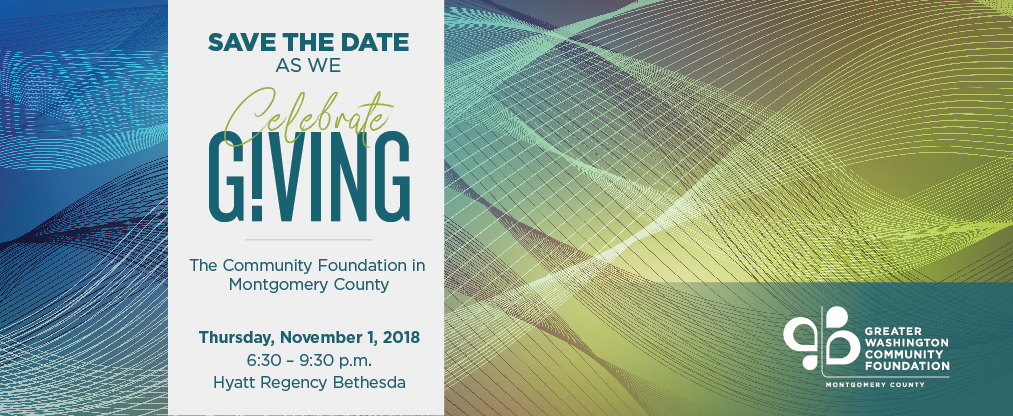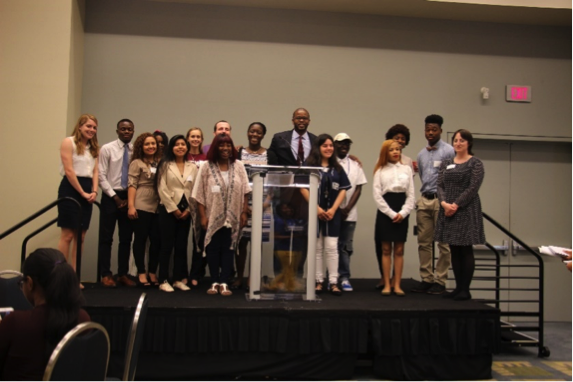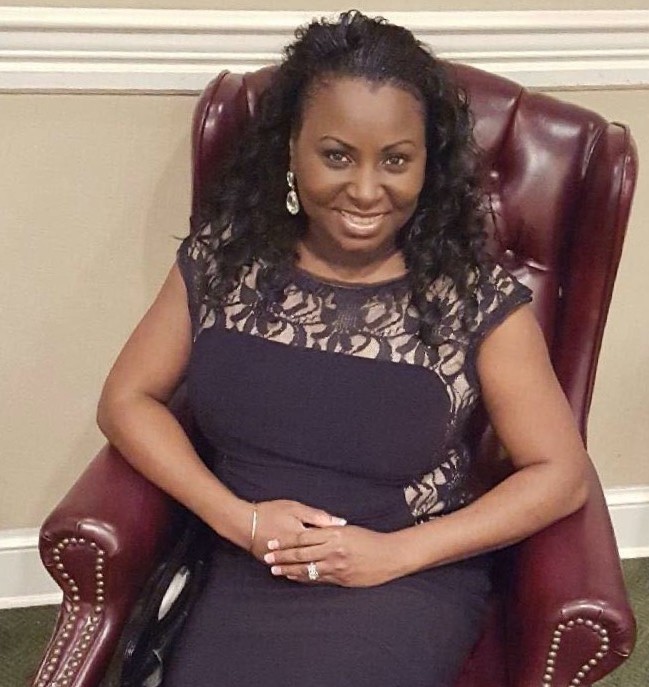Join our Sharing DC and Sharing Montgomery Committees to visit high-impact nonprofits serving our region. Site visits offer a great way for The Community Foundation’s donors to learn about some of the most critical issues facing our communities and the organizations working to address them. Each visit typically lasts one hour, which includes time to talk with the organization’s leadership about the mission and goals, tour the facilities, observe a program in action, or talk directly with people whose lives have been touched by this work.
To attend any of the site visits below, please contact rsvp@thecommunityfoundation.org. Directions and additional information about each visit will be sent to registered guests as the dates draw near.
Tuesday, September 25
10:30 a.m., DC
Community of Hope creates opportunities for low-income families (30% of which are headed by youth) experiencing homelessness to achieve good health, a stable home, family-sustaining income. Community of Hope’s temporary housing program, Girard Street Family Shelter, provides temporary shelter and supportive services for 20 homeless families with children, while their transitional housing program provides apartment-style housing and supportive services for 10 homeless families with children where the head of household is in recovery from substance abuse. Permanent housing solutions are also offered through scattered-site homes.
Wednesday, September 26
2:00 p.m., DC
Casa Ruby manages a 24-Hour Support Services Center that provides immediate and/or emergency support to clients, including but not limited to: food, clothing, emergency care and referrals to other services. Casa Ruby also provides case management, peer youth counseling, DC ID vouchers, legal, health and other wrap around services to its target populations. Casa Ruby runs the Trans Life Center and Drop In Center which daily extends a full range of support, that also includes career services all complemented by our on-site preventive health services testing for sexually transmitted illnesses and weekly group therapy to address mental health.
Tuesday, October 2
11:00 a.m., DC
Since its founding, Sexual Minority Youth Assistance League (SMYAL) has connected homeless LGBTQ youth with housing and has provided them with free clothing and toiletries, showering facilities, and donated cell phones and lap tops. SMYAL also offers the Transitional Living Program for runaway homeless LGBTQ youth 18-24. The Transitional Living program facilitates movement towards greater self-sufficiency and successful achievement of goals. Young people are encouraged to explore their interests and futures in the areas of employment and career, education, living situation, personal effectiveness and well-being, and community-life functioning.
Thursday, October 4
11:00 a.m., DC
Sasha Bruce Youthwork (SBY) works to improve the lives of runaway, homeless and disconnected youth in the Washington area. Services include transitional housing, counseling, life skills training, workforce preparation and positive youth development activities. SBY offers programs such as transitional housing for homeless young women and their babies in Ward 7, as well as a Homeless Youth Drop-in Center which uses a harm reduction framework for unaccompanied youth up to the age of 24.
Wednesday, October 10
10:00 a.m., DC
Pathways to Housing DC’s Housing First program focuses on getting people with severe psychiatric disabilities and other complex medical challenges off the streets and into a safe and stable place of their own. The traditional pre-conditions such as sobriety or documented mental health treatment that must be met before the person is offered housing are taken away, but each person served is held accountable in other ways. Each program participant signs their own lease for an apartment that they choose and 30% of their income is relegated towards their rent.
Thursday, October 11
1:00 p.m., Montgomery County
EveryMind (formerly known as the Mental Health Association) provides crisis intervention, supportive listening and referrals through the suicide prevention hotline. It is also the lead of Serving Together which utilizes technology and a network of partners to guide veterans, service members, and their families to the most appropriate services and resources available.
2:30 p.m., Montgomery County
Family Services serves over 12,000 vulnerable residents with a wide array of programs. Join us to learn about its supports services to help low-income parents with young children achieve financial stability and career counseling and life-skills development for parenting teens.
Monday, October 15
3:15 p.m., Montgomery County
Liberty’s Promise provides an after‐school and internship program for young immigrants and first-generation American students to deepen their civic education and gain valuable job skills.
Tuesday, October 16
2:00 p.m., DC
Miriam’s Kitchen provides services including meals to street outreach, wraparound services for permanent supportive housing, case management, and social services for people experiencing homelessness. Almost half of those served by Miriam’s Kitchen live with a medical, mental, or other disabling conditions while a third report problems with drugs or alcohol. Additionally, Miriam’s Kitchen serves as an advocate to improve the homeless services system and find more equitable housing solutions.
Monday, October 22
9:00 a.m., DC
Latin American Youth Center’s (LAYC) homeless youth Drop-In Center (DIC) program, provides referrals to safe and stable housing for runaway, homeless, street, and unstably housed youth. The DIC offers comprehensive services and support for these young people through emergency care and supplies, crisis intervention, coordinated entry assessment, case management, family intervention, and aftercare support. In addition, LAYC has created the innovative Promotor Pathway® to assist the region's most vulnerable youth. These young people work one-on-one with Promotores (guides/navigators) who build long-term relationships and connect youth to the full range of programs and services they need to become successful young adults.
Wednesday, October 24
11:00 a.m., DC
The Neighbors First Families program of Friendship Place provides long-term, wraparound, supportive services to formerly homeless families with children. Many of the families are housed in units that are unsafe or inadequate, and their long-term stability hinges on being able to relocate to safer housing where well-being and recovery are possible. Friendship Place serves those with serious mental health challenges and who have had a long history of homelessness, to those who’ve become recently displaced by a job loss, health set-back or family crisis and who need only short-term help to get back on their feet.
Thursday, October 25
10:00 a.m., Montgomery County
Red Wiggler Community Farm provides comprehensive on‐farm training and education programs for adults with developmental disabilities. In addition to providing organic produce to the community, the farm’s surplus food is donated to local group homes and the Manna Food Center to help alleviate hunger.
Tuesday, October 30
5:00 p.m., DC
Today’s homeless women are beset by layers of challenges, including being under- or unemployed, unskilled, uneducated and suffering from addictions, trauma, and/or mental health problems. Generational homelessness is more often an issue, leaving women who have never experienced stability of home, work and family. New Endeavors by Women (NEW) combats these challenges through programs which provide safe shelter, advocacy and case management, independent living skills education, substance abuse recovery assistance, parenting skills training, academic enrichment activities, employment and career counseling, and strategies for obtaining and maintaining permanent affordable housing.
Tuesday, November 6
10:00 a.m., Montgomery County
Stepping Stones Shelter provides emergency shelter and support for approximately 88 homeless families with children each year. Its programs help families provide hope for the future while promoting self‐sufficiency.
11:30 a.m., Montgomery County
Hearts & Homes for Youth provides shelter and support to youth who have experienced abuse, neglect, mental health issues, homelessness, and other trauma. Its programs aim to help youth make positive life choices and build brighter futures.
Wednesday, November 7
1:30 p.m., Montgomery County
Manna Food Center is Montgomery County’s primary food bank which serves over 35,000 people annually through its Smart Sacks and summer food programs for children, food recovery partnerships with local restaurants and caterers, and the main food distribution program which helps families struggling to put food on the table. Join us to learn about Manna’s ambitious plans to expand its reach to help an additional 10,000 people each year.
Friday, November 9
1:00 p.m., Montgomery County
Housing Unlimited provides affordable, independent housing for adults in mental health recovery in Montgomery County.
Tuesday, November 13
6:30 p.m., Montgomery County
FutureLink provides a career exploration and self-advocacy program for economically disadvantaged college students. Following the 14-week seminar, students benefit from mentoring, tutoring, academic advising, scholarships, and internships geared to help them graduate from college and secure jobs which provide a living wage.
Tuesday, November 27
10:00 a.m., Montgomery County
Identity, Inc. provides programs and services to help more than 3,000 Latino youth and their families reach their highest potential and successfully transition to adulthood. Using a trauma-informed, positive youth development approach, Identity’s programs include leadership and academic enrichment for middle and high schoolers, mental health counseling, gang prevention/intervention programs, and workforce development.
11:30 a.m., Montgomery County
CCI Health and Wellness Services connects low-income patients with holistic healthcare services delivered by a multilingual and diverse staff. Join us to learn about the adolescent health services which equip teens and young adults with reproductive healthcare, integrated health services, and education.
Thursday, November 29
3:30 p.m., Montgomery County
Asian American LEAD provides afterschool, mentoring, and summer programming for low‐income and underserved Asian American youth that promotes positive identity development through education, leadership development, and community building programs.
Saturday, December 1
10:00 a.m., Montgomery County
Horizons Greater Washington addresses the “summer slide” problem in which students lose reading and math skills over the summer months. Horizons sticks with K-8th youth over nine years, providing a summer camp and school-year Saturday support filled with academic, recreational, and enrichment activities geared to kindle a lifelong passion for learning and foster collaboration, creative problem-solving, and grit.
Thursday, December 6
4:30 p.m., Montgomery County
Per Scholas offers a free IT training, certification, and career placement programming for individuals from often overlooked communities that equip them with the skills to enter the diverse technical workforce of today.
6:00 p.m., Montgomery County
IMPACT Silver Spring facilitates community networking programs and events focused on building intentional relationships among diverse peoples to foster trust, collaboration, and value exchange in the pursuit of healthier individuals, families, and neighborhoods.
Tuesday, December 11
2:00 p.m., Montgomery County
Mary’s Center operates federally qualified health centers to provide healthcare, family literacy, and social services. It uses a holistic, multipronged approach to help all patients access individualized services that set them on the path toward good health, stable families, and economic independence. Join us to tour the newly expanded site in Silver Spring.
Tuesday, December 18
2:00 p.m., Montgomery County
CollegeTracks works one-on-one with over 1,000 high school students, particularly those who are low-income and first in their families to go to college. The personalized coaching approach helps students navigate the college application and financial aid process. Volunteers and alumni then follow-up to help ensure students enroll, persist, and graduate from college or technical school.
Wednesday, December 19
10:30 a.m., Montgomery County
Interfaith Works serves over 16,000 people each year with emergency food, shelter, clothing, and other vital services. Join us to learn how the organization has realigned its programs and services to go deeper, helping our lowest-income neighbors lift themselves out of poverty instead of merely responding to crises.

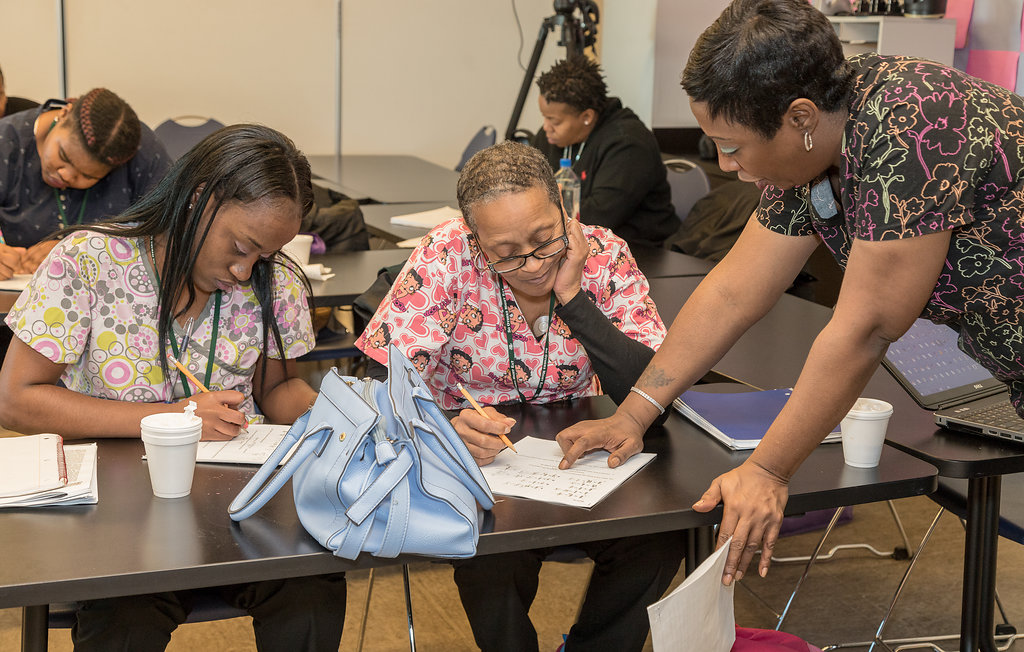
![School+at+Work+Students[2].jpg](https://images.squarespace-cdn.com/content/v1/58f791ec37c58188d411874a/1540581049324-JZJZAX4HMWWEZETX2DB0/School%2Bat%2BWork%2BStudents%5B2%5D.jpg)








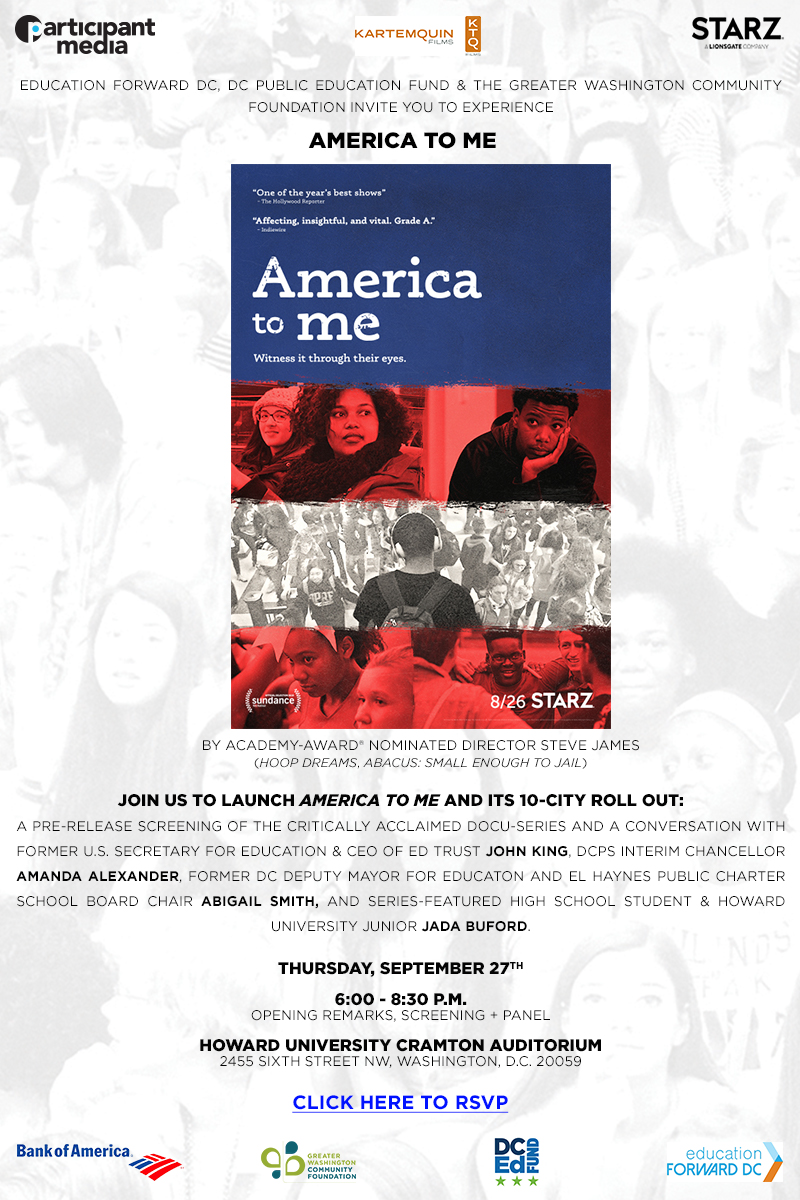
![Pages+from+Survivors-Fund-Final-Report[1].jpg](https://images.squarespace-cdn.com/content/v1/58f791ec37c58188d411874a/1536680291888-C4MA99XYZCNFQXSP9TER/Pages%2Bfrom%2BSurvivors-Fund-Final-Report%5B1%5D.jpg)
![Pages+from+Survivors-fund-process-publication[1].jpg](https://images.squarespace-cdn.com/content/v1/58f791ec37c58188d411874a/1536680355302-7PUBILDHZEKNI7A17ZN7/Pages%2Bfrom%2BSurvivors-fund-process-publication%5B1%5D.jpg)

